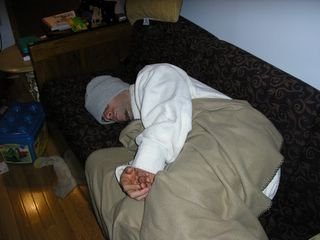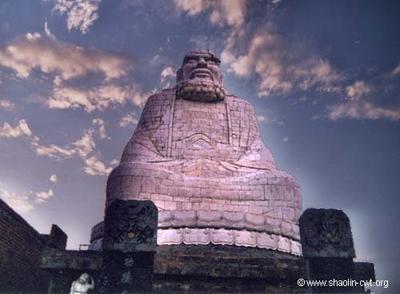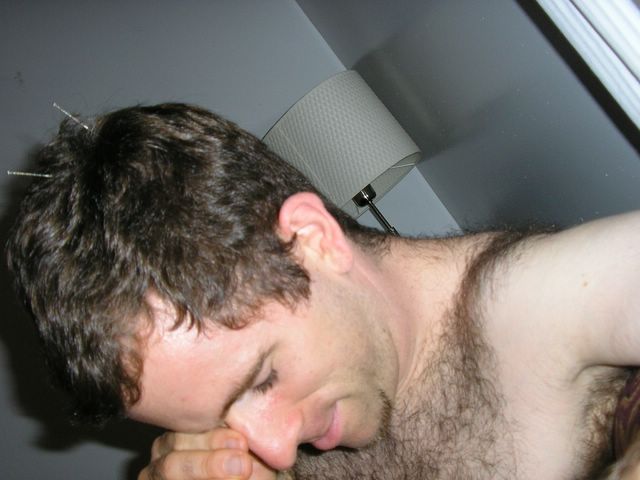
 Today's topic is the Hagakure: The Book of the Samurai. I was introduced to this book through the Jim Jarmusch film Ghost Dog. Throughout the movie, Forrest Whitaker's character reads passages from the Hagakure that correspond with events in the movie. While the movie is an entertaining introduction to the mindset of the samurai, the Hagakure gets a little deeper and goes places that are not so enjoyable to go. The Hagakure was written by Yamamoto Tsunetomo, a samurai in the 17th century who became a Buddhist monk in the last 20 years of his life. The Hagakure is not a religious text or even an instruction manual. It is a collection of stories and thoughts spoken by Tsunetomo and written by a younger samurai. The content reflects Buddhism, Daoism, Confucianism, Shintoism, and killingism. While there are many passages that have caused me to reflect on things and in the end feel calmer and more grounded, some passages are straight up disturbing. The time the samurai lived in must have really sucked. People would get killed or kill themselves for nothing. Somebody offends you in the street? Cut them down without thinking. Gone out for a night of drinking and embarrass your boss? Kill yourself in the morning. Lots of shit like that. And the book doesn't just tell how to behave but tells hundreds of stories of people of that time who did that crazy shit. He also explained that young boys should be taught to decapitate dogs and when they are teenagers they should practice decapitating the condemned so that when they are older killing will not faze them; and that if a man is fainthearted about killing he is a coward. That's mainly in the second half of the book. I am rereading the first half. What I find admirable about the samurai is their dedication and the clarity with which they behave. They exemplify Zen. By being disciplined and focused at all times, they can act with lightning speed and razor sharp precision. They act with out discrimination or logic because their mind is in a state where duality and contrast does not exist. There is only an empty field or a calm sea. All is clear and nothing lies between a Samurai and his goal.Here are a few passages I like:
Today's topic is the Hagakure: The Book of the Samurai. I was introduced to this book through the Jim Jarmusch film Ghost Dog. Throughout the movie, Forrest Whitaker's character reads passages from the Hagakure that correspond with events in the movie. While the movie is an entertaining introduction to the mindset of the samurai, the Hagakure gets a little deeper and goes places that are not so enjoyable to go. The Hagakure was written by Yamamoto Tsunetomo, a samurai in the 17th century who became a Buddhist monk in the last 20 years of his life. The Hagakure is not a religious text or even an instruction manual. It is a collection of stories and thoughts spoken by Tsunetomo and written by a younger samurai. The content reflects Buddhism, Daoism, Confucianism, Shintoism, and killingism. While there are many passages that have caused me to reflect on things and in the end feel calmer and more grounded, some passages are straight up disturbing. The time the samurai lived in must have really sucked. People would get killed or kill themselves for nothing. Somebody offends you in the street? Cut them down without thinking. Gone out for a night of drinking and embarrass your boss? Kill yourself in the morning. Lots of shit like that. And the book doesn't just tell how to behave but tells hundreds of stories of people of that time who did that crazy shit. He also explained that young boys should be taught to decapitate dogs and when they are teenagers they should practice decapitating the condemned so that when they are older killing will not faze them; and that if a man is fainthearted about killing he is a coward. That's mainly in the second half of the book. I am rereading the first half. What I find admirable about the samurai is their dedication and the clarity with which they behave. They exemplify Zen. By being disciplined and focused at all times, they can act with lightning speed and razor sharp precision. They act with out discrimination or logic because their mind is in a state where duality and contrast does not exist. There is only an empty field or a calm sea. All is clear and nothing lies between a Samurai and his goal.Here are a few passages I like:
"To hate injustice and to stand on righteousness is a difficult thing. Furthermore, to think that being righteous is the best one can do and to do one's utmost to be righteous will, on the contrary bring many mistakes. The Way is in a higher place than righteousness. This is very difficult to discover, but it is the highest wisdom. When seen from this standpoint, things like righteousness are rather shallow. If one does not understand this on his own, it cannot be known. There is a method of getting to this Way, however, even if one cannot discover it by himself. This is found in consultation with others. Even a person who has not attained this Way sees others from the side. It is like the saying from the game of go: 'He who sees from the side has eight eyes.' The saying: 'Thought by thought, we see our own mistakes,' also means that the highest way is in discussion with others. Listening to the old stories and reading books are for the purpose of sloughing off one's own discrimination and attaching oneself to that of the ancients."
"A certain swordsman in his declining years said the following: 'In one's life, there are levels in the pursuit of study. In the lowest level, a person studies but nothing comes of it, and he feels that both he and others are unskillful. At this point he is worthless. In the middle level he is still worthless but is aware of his own insufficiencies and can also see the insufficiencies of others. In a higher level he has pride concerning his own ability, rejoices in praise from others, and laments the lack of ability in his fellows. This man has worth. In the highest level a man has the look of knowing nothing.
'These are the levels in general. But there is one transcending level, and this is the most excellent of all. This person is aware of the endlessness of entering deeply into a certain way and never thinks of himself as having finished. He truly knows his own insufficiencies and never in his whole life thinks that he has succeeded. He has no thoughts of pride, but with self-abasement knows the Way to the end. It is said that Master Yagyu once remarked: 'I don not know the way to defeat others, but the way to defeat myself.'
Throughout your life advance daily, becoming more skillful than yesterday, more skillful than today. This is never-ending. ' "



